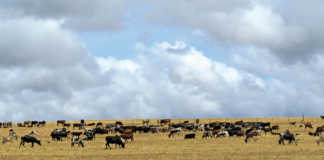But according to industry sources, South Africa is nowhere close to producing enough biodiesel to comply with this. “Government may have gazetted the mandatory use of biofuels, but no deadline has been given and it could be many years before the new legislation gets promulgated,” said Paul Maher, managing director of NanoElf Biodiesel, local manufacturer of small and micro biodiesel plants.
According to Maher, South Africa currently produces only enough biodiesel to add about 1% of it to all regular diesel. He said there was currently very little interest in South Africa to produce biodiesel on a commercial scale, because heavy duties had to be paid when a producer manufactured more than 300 000l of biodiesel per year. Furthermore, biodiesel producers said that at the current market price there was a lot of uncertainty about the profitability of biodiesel production.
Darryl Melrose of African biodiesel producer, Biodiesel SA, said it only used oil that it bought mainly from restaurants and caterers because it is “too expensive to use fresh oil”. Melrose said biodiesel traded for around R10,55/l and at this price using “fresh oil” was just not viable. Cooking oil producers like Southern Oil (Soill) in Swellendam that produce canola and grape seed oil have not been overly keen to enter the biodiesel market for the same reason.
“It is not that there isn’t a demand for biodiesel, but it would simply not be profitable at the current biodiesel prices,” said Soill managing director, Kellie Becker. Maher said the demand for biodiesel manufacturing equipment had slowed down during the past two years, but whenever the price of fuel spikes, so does the demand, especially from farmers, for small biodiesel plants. “A small biodiesel plant can produce about 110l of biodiesel per day. With fresh, unused oil you get about a litre of biodiesel for every litre of oil, but with used oil there is a yield loss of about 10%,” said Maher.












